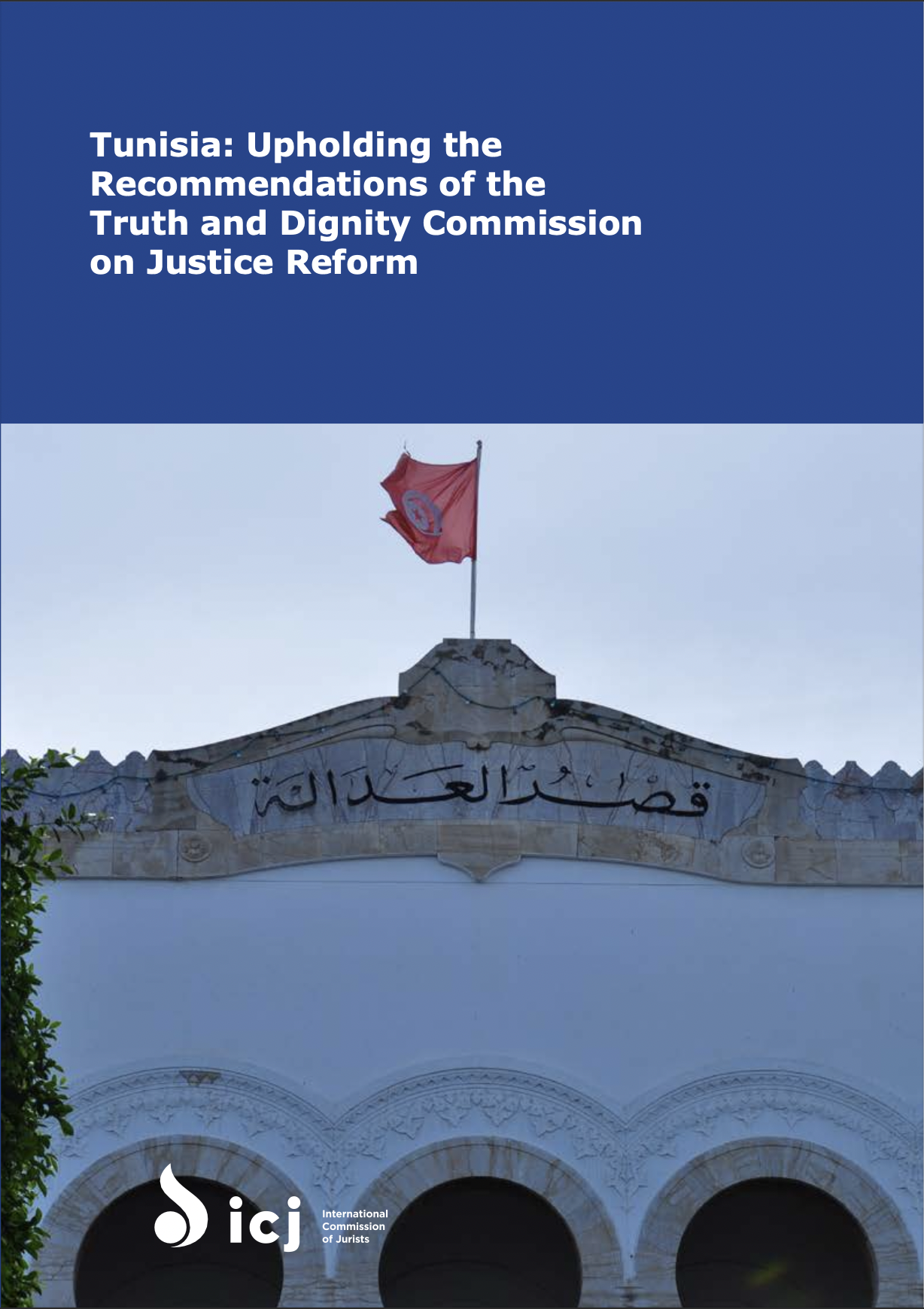Tunisia’s authorities have failed to act upon the IVD recommendations to uphold judicial independence as a prerequisite to the rule of law and a fundamental safeguard for constitutional rights and freedoms, the International Commission of Jurists (ICJ) said in a briefing paper published today.
Ce communiqué de presse est disponible en français aussi
The paper, titled ‘Tunisia: Upholding the Recommendations of the Truth and Dignity Commission on Justice Reform’, takes stock of the recommendations to achieve judicial independence in the domestic legal system formulated by the Truth and Dignity Commission (Instance Vérité et Dignité, IVD).
Almost three years after the IVD issued its final report, the Tunisian government is yet to adopt an action plan to implement the report’s recommendations, as required by the 2013 Law on transitional justice.
Since the adoption of the 2014 Constitution, only few reforms aimed at complying with constitutional principles and international standards have been adopted, and several loopholes allowing for the undue influence of the executive over the judiciary remain.
“The delay in adopting the required reforms leaves the justice system ill-equipped to resist undue pressure,” said Said Benarbia, the ICJ’s Middle East and North Africa Program Director.
“This is particularly regrettable at a time when, since 25 July, the President’s unconstitutional power grab and the ensuing concentration of powers in his hands are testing the independence of the judiciary”
Building on the IVD recommendations and on its prior report on the independence of the judiciary in Tunisia, the ICJ’s paper sets out a detailed list of legal reforms the Tunisian authorities should adopt with a view to ensuring the country’s full compliance with international human rights law and standards on the independence of the judiciary.
“Upon the reestablishment of the constitutional order, all laws and decrees providing for undue influence of the executive over the judiciary must be promptly abrogated,” Benarbia added. “In the meantime, the High Judicial Council, as the guardian of judicial independence, must play its role to the fullest.”
Other recommendations include Tunisia’s need to ensure:
- The adoption of a comprehensive, consolidated reform providing for a new statute for judges consistent with international standards and empowering the High Judicial Council in all matters relating to judges’ career, excluding any substantive role in the same for the executive and legislative branches, and amending the status of related judicial institutions accordingly;
- The prohibition and adequate sanctioning of any undue interference from any source with the judiciary and any obstruction to the course of justice, and the full implementation and enforcement of judicial decisions and orders;
- The removal of the hierarchical authority of the Minister of Justice over the Public Prosecution, including the power to issue instructions in individual cases, through the reform of the Code of Criminal Procedure; and
- Judges sitting in military courts have a status guaranteeing their independence and impartiality, and that the jurisdiction of military tribunals be limited to military personnel for alleged military offences, explicitly excluding jurisdiction over civilians and cases of grave human rights violations.
Download:
The briefing paper in English, French, and in Arabic.
This press release in English, French, and in Arabic.
Contact:
Said Benarbia, Director of the ICJ’s MENA Programme, email: said.benarbia(at)icj(dot)org
Asser Khattab, Research and Communications Officer, the ICJ’s MENA Programme, email: asser.khattab(at)icj(dot)org




